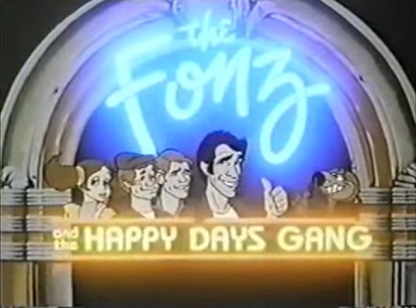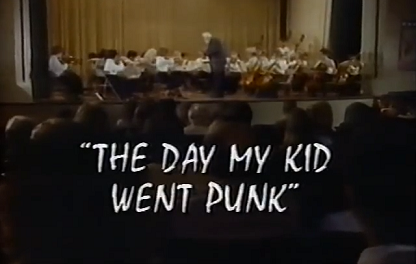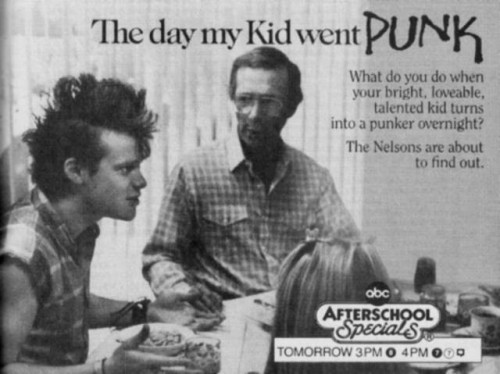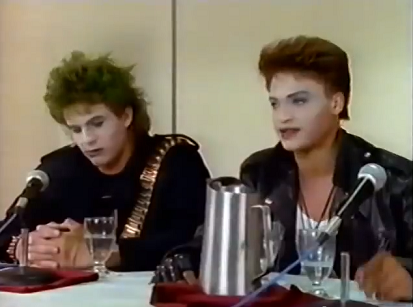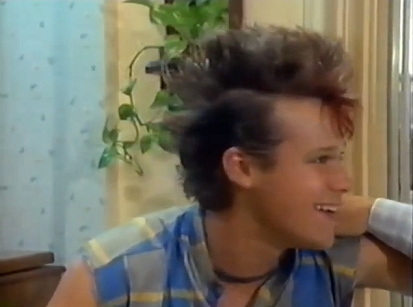“I was wrong in trying to push you toward the country and western.” He held up a hand. “I thought we had to try, but I was wrong. I’m big enough to admit it. But I think I’ve got the right mesh for you now. I think it could be dynamite.”
“Yes, sir?”
“You have a quality which is quite rare. An innocence, yet an aliveness–which is unique. I think we have conceived a right combination for you. Almost…almost, but not quite…the beauty and the beast.”
At her frown of incomprehension, he smiled. “You will just go on being you, sweet and innocence, with a dash of sex appeal and a touch of daring. He will be the eternal menace, the seducer, the dark side of everyone. The contrast should be quite, quite unique.”
“He?” she asked.
“Rick Ventura. He has the show biz savvy, the right kind of sleekness to contrast with you.” Bauer put up his hand. “I know he’s older, I know he’s maybe too slick, but we think the mesh is good. At least until we try it.”
Now, this comes off like some lurid shit, doesn’t it, all that stuff about “beauty and the beast,” and how a young woman’s innocence will contrast with an older man’s dark side. It sounds like the opening to 99 cent Kindle porn, where the female lead is named Victoria or Annabelle, and she eventually melts the icy heart of a billionaire by letting him stick it in any part of her it’ll fit. But no, believe it or not, this is from a book written for a young teen audience. Even more implausibly, it’s a book adaptation of Joanie Loves Chachi.
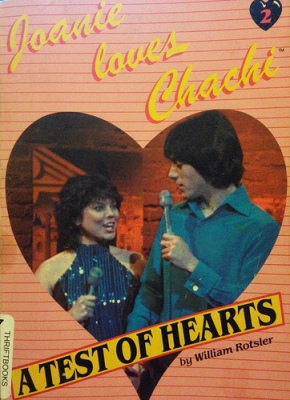
This was the second of only two in a series of Joanie Loves Chachi tie-in novels, which suggests they were about as successful as the TV show. The seventh and last spin-off of Happy Days, premiering when Happy Days itself was hobbling into its tenth season, Joanie Loves Chachi focused on primetime’s most boring couple, and their adventures as they try to make it as singers in Chicago. Much like its predecessor in the last few seasons, the early 1960s setting was largely in plot description only, with Joanie wearing a perm, the male characters having fashionably feathered hair, and wardrobes that were heavy on sequins and velour.
Though the show occasionally made references to the Beatles, and what a challenge it would be for a couple of scrappy kids from the Midwest to compete with the British Invasion, the music Joanie and Chachi perform with their band is the blandest of late 70s-early 80s pop cheese. Check out the theme song: it makes Christopher Cross sound like Black Sabbath. A great deal of audience goodwill is expended just on buying that the other characters on the show, including Al (Al Molinaro, R.I.P.) and Chachi’s mother Louisa (Ellen Travolta), would be moved to near tears over their performance, let alone that strangers would erupt in ecstatic applause.
Because mediocre movies, TV shows, and books about bands are required by law to have a subplot in which one of the members is tempted with the offer of becoming a solo act, such is the focus of A Test of Hearts, the official name of the book. As if anyone would have bought this book without already having at least a passing knowledge of Joanie Loves Chachi, nearly the entire first chapter explains who all the characters are, and how they ended up in Chicago (which Joanie, as part of her internal monologue, helpfully refers to as “the Second City,” “a toddlin’ town,” and “the metropolis in the center of America”). As was already established in the TV show, Joanie and Chachi lend their blistering vocals to a band that also includes Chachi’s Italian stereotype cousins Mario and Annette (Annette, described at various times as “plump” and “chubby,” is usually eating something) and Bingo, who comes off as either perpetually stoned or autistic.
A “running gag,” if you want to call it that, in A Test of Hearts, is that the band doesn’t have a name. The ideas that Joanie and Chachi come up with, not to mention the names of fictitious rival bands, are hilariously (albeit unintentionally) This is Spinal Tap level terrible. They include:
- Fran Towner and the Burbees
- Tiger Digby and the Alien Cometh
- The Arcola Five
- The Joanie-Chachi Group
- The Space Travelers
- Two and Three (suggested because there are two female and three male members of Joanie and Chachi’s band)
- Elayne and the Elephants
- Chachi and the Arcolas
Chachi’s Uncle Rico, who dresses and talks like a character in an Edward G. Robinson movie, gets the band a go-see with Ed Bauer and his sinister partner Nick Andruschak, producers for “Centaur Records.” Things go pretty well, until–uh oh!–they tell Uncle Rico that they’re only interested in taking on Joanie as a singer. We know Ed’s a Hollywood slimeball because he constantly refers to Joanie as “snookie” and “babykins,” but he’s a lovable slimeball who only wants her to make it as a star. Nick, on the other hand, whose dialogue is invariably described as “grunting” or “growling,” is inexplicably villainous, so convinced that Joanie is a can’t-miss proposition that he’ll exact violence on anyone who gets in the way.
Though Joanie is more than a little reluctant to leave the band as a solo act, Chachi gallantly gives her his blessing. If Joanie is portrayed in the book as a sweetly innocent small town bumpkin (though I’m not sure Milwaukee could be accurately described as a “small town”), Chachi comes off as a secular saint, selflessly putting Joanie’s hopes and dreams before his own, and so handsome that nearly everyone in his life remarks upon it, including his own mother, as in this passage: “She sighed. He was handsomer than his father, bless his soul. She knew that handsome men were often shallow men, involved with only their looks and their effect on other people. There were women the same way, of course. When Chachi was still a child she had seen his beauty–as objectively as she could, since all mothers have the most adorable child in the world–and had tried all these years to not let him grow into a primping, ego-driven caricature of a man.”
Eeeeeeeeewwwww! Anyway, when Joanie arrives for her first day of recording at the studio, she is shocked and disappointed to discover that she can’t just walk right in and start singing her own songs in the manner that she sung them with Chachi. She is aghast that Ed expects her to change her singing style, and maybe even her appearance, in order to meet with current music trends. First he tries to make her into a country-western act, then partners her with the sleazy Rick Ventura. None of it seems to fit just right, and eventually the label, intimidated by the growing force of the British Invasion, decides to market her as part of a new music trend they call “Slime Rock,” which would involve Joanie streaking her hair and eating flowers on stage.
While that sounds totally awesome, Joanie wants no part of it. She may dream of stardom, but she wants it only by Chachi’s side, singing their wet noodle love ballads together all the way to a spot on American Bandstand. Chachi, meanwhile, suffers his heartbreak and disappointment in devastatingly handsome silence, while Mario and Annette weakly cheer on Joanie’s efforts. Only the highly irritating Bingo speaks up in favor of the record label’s marketing gimmicks, interminably babbling like Dustin Hoffman in Rain Man.
After Al, who is now Chachi’s stepfather, literally quotes “To thine own self be true” at her, Joanie flees her contract and returns to the band and Chachi’s loving arms. Nick, infuriated that he’ll have to find someone else to be the Nico for their “Slime Rock” band, shows up and pushes Chachi around, but is chased off by Uncle Rico. At the end–what luck!–someone else with connections to a different record label shows up to watch them perform, and suggests that the label would be interested in them just the way they are. The book concludes with Joanie planting a kiss on Chachi that “everyone envied.”
A Test of Hearts is one of those endearingly naive books for young people that suggests it is entirely possible to make it in show business without having to compromise your act, style, or even your look in any way. I mean, clearly The Beatles just showed up for their first day of recording in matching suits and haircuts, that wasn’t some record executive’s idea, right? Surely Lesley Gore would have still made it if she had sung love songs about the gender to which she was actually attracted. This is the same kind of thinking that inspired one of the more annoying aspects of Generation X, particularly those in the grunge scene (and I was one of those people), that a band or performer changing their musical style or appearance in order to reach a bigger audience was considered to be the lowest form of selling out, let alone debasing one’s self enough to sign a recording contract. Fuck paying the rent or eating anything other than Cup Noodles, artistic integrity comes first!
Yes, what I’m trying to tell you is that Joanie is basically Kurt Cobain in this book.
Because there is absolutely no question that Joanie will choose Chachi over the lure of solo stardom, there’s a whole lot of padding to get A Test of Hearts to just over 150 pages. And when I say padding, I mean this is the literary equivalent of a middle school girl’s bra. The reader is treated to the inner monologues of not one, not two, but four different characters, none of whom seem to think of anything else but Joanie and Chachi, how good-looking they are, and how perfect their relationship is. No one can enter a room without providing excruciating detail about what it looks like, leading to this gripping passage set in a restaurant kitchen: “Food was being chopped, scraped, cut, boiled, sauteed, simmered, rinsed, tasted, and displayed prettily. Later on, during the completion of orders, it would also be broiled, baked, heated, cooled, and tossed.” Thank goodness author William Rotsler mentioned this, otherwise I would have assumed that after all the chopping, scraping, cutting, boiling, sauteeing, simmering, rinsing, tasting, and displaying prettily the food would have just been thrown in the trash. See, I know how to pad too.
Nevertheless, this is “young adult” romance, long before the term actually existed, and young adult romance is nothing if not pure wish fulfillment. When you were experiencing your first love, you probably assumed that everyone around you and your partner did little more than think about your relationship, smiling and nodding in approval like Al and Chachi’s mom do here. When young teens harbor dreams about becoming an actor or a rock star, they assume that an agent or record producer will be so blown away by their authenticity that they’ll immediately give them free range to perform whatever songs or acting roles they want. So, as pure fantasy, A Test of Hearts gets the job done. It almost makes me a little wistful for the time when I was young enough to still believe in that kind of horseshit.


